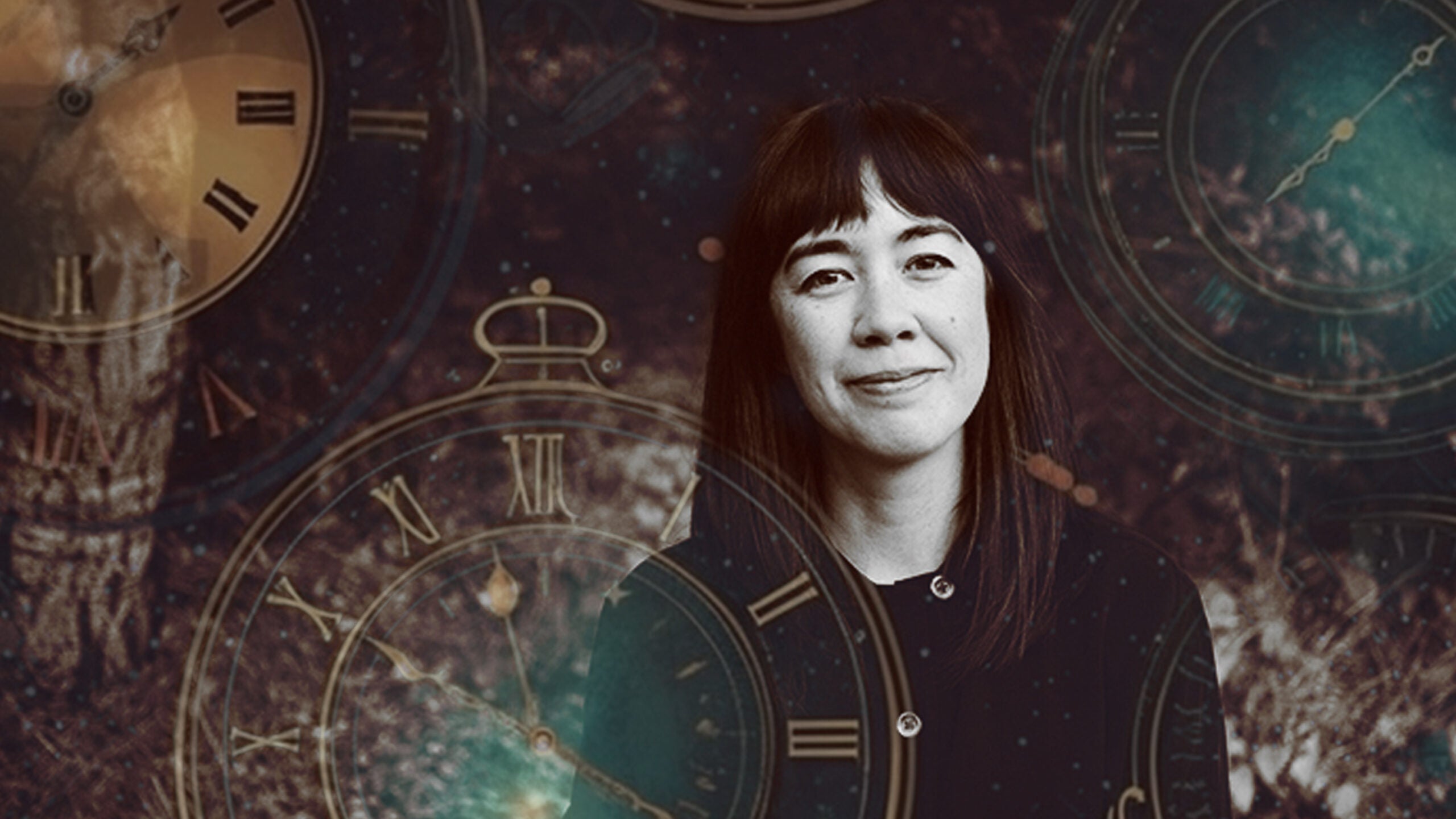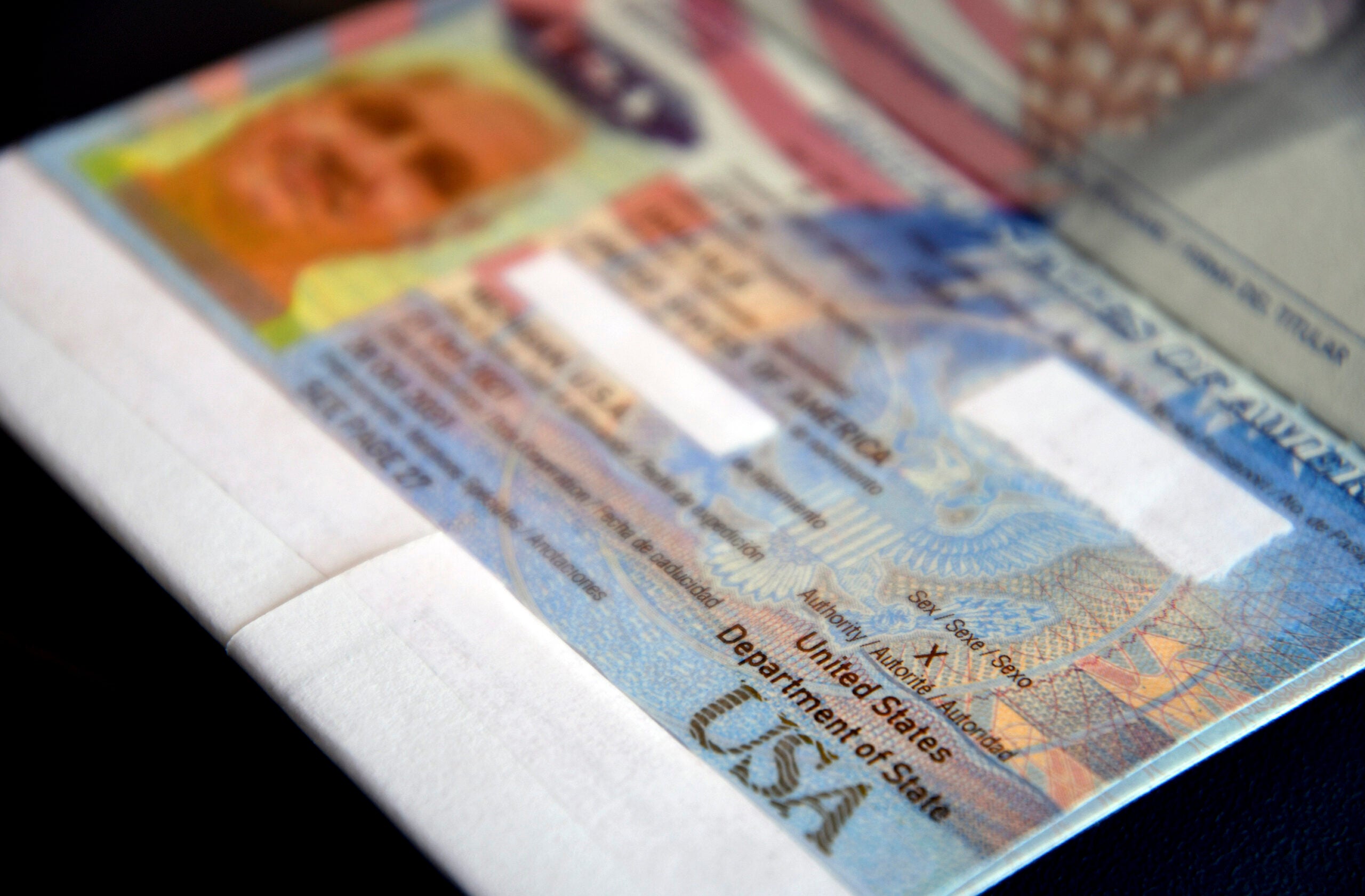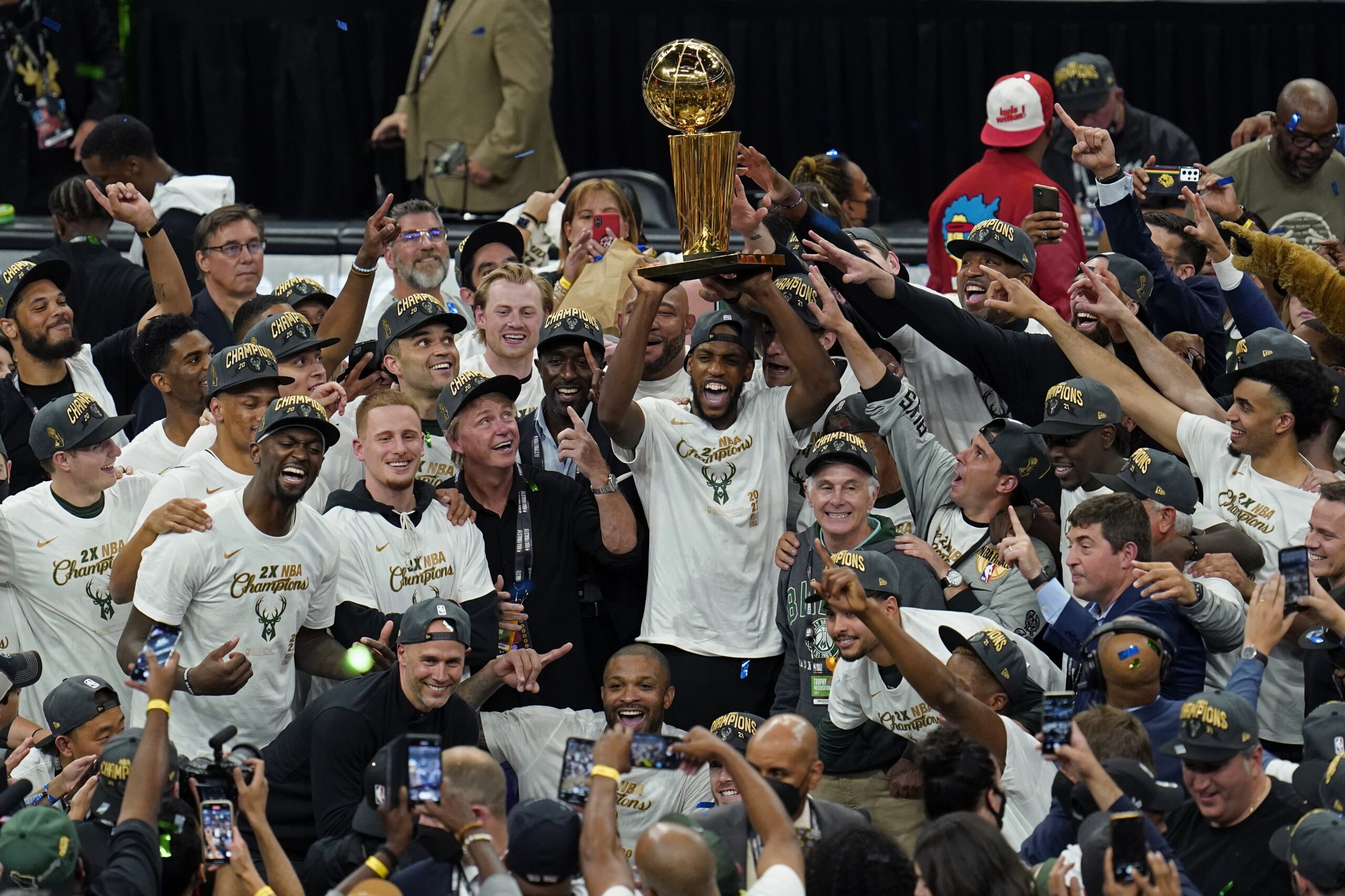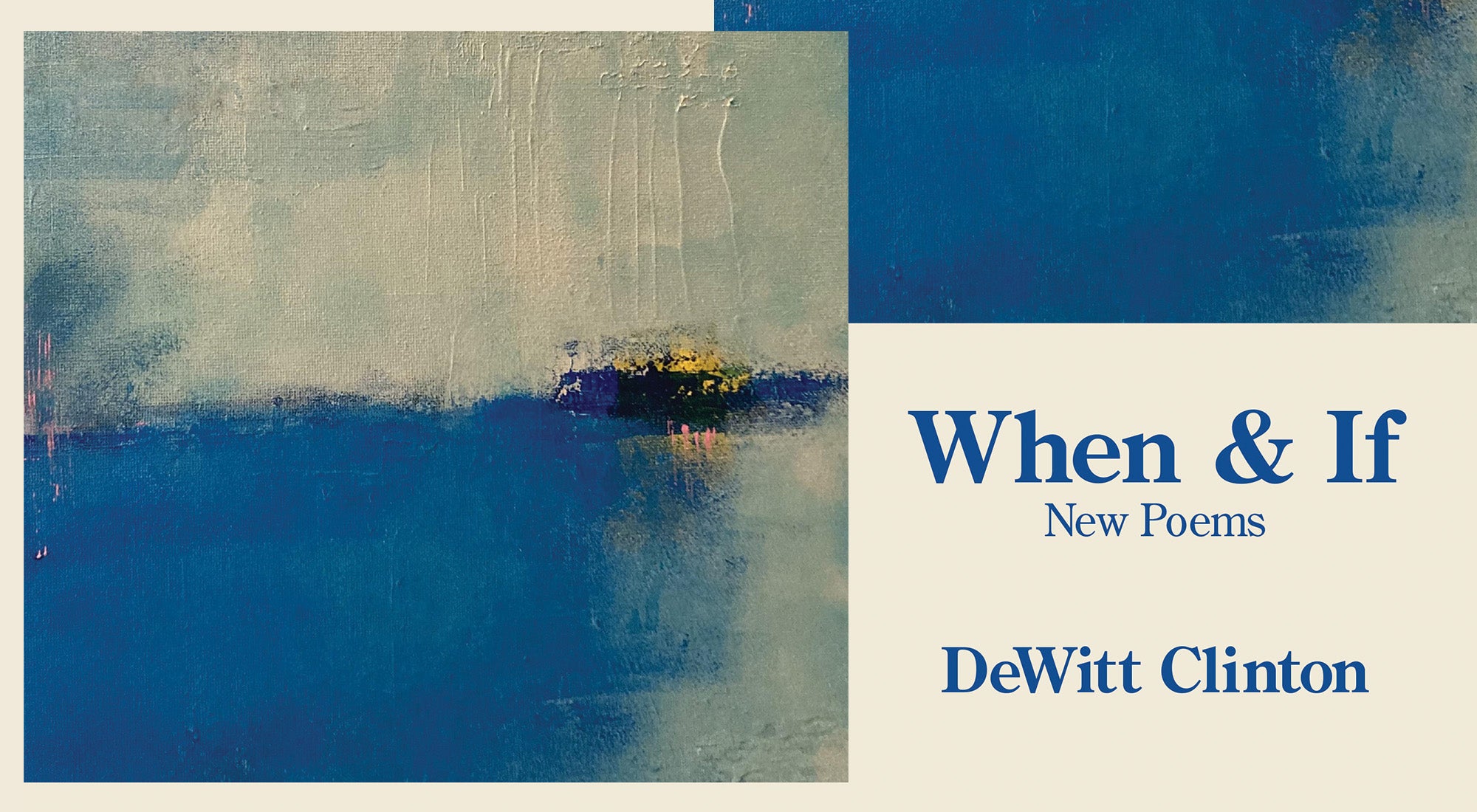Time hovers over the page as I write this sentence. 4:15 p.m. Small characters perched in the upper right corner of my computer screen — an unobtrusive yet inescapable reminder that no matter where I am and no matter what I’m doing, I am always on the clock.
Across the room, more time cues blink — the coffee maker and oven would also like me to be aware of the time. Not to be outdone, my phone chimes in — a text message sent, three minutes ago, from my editor. Yes, I’m on deadline. Aren’t we all?
You can tell a lot about the implicit values and moral imperatives of a culture from seemingly insignificant things, like clocks. When did ours become so dominant, so enmeshed in our daily lives? And what are they doing to us?
News with a little more humanity
WPR’s “Wisconsin Today” newsletter keeps you connected to the state you love without feeling overwhelmed. No paywall. No agenda. No corporate filter.
Nothing good, according to Jenny Odell. In “Saving Time: Discovering a Life Beyond the Clock,” the artist and author deconstructs the history of our culture’s obsession with quantified time — and suggests a way back to a healthier, less painful relationship with the days, months and years of our lives.
This conversation has been edited for clarity and length.
AS: What’s an example for you of time feeling painful?
JO: I mean, there’s the everyday granular sense, and then there’s the big sense, right? Like (when that U.N.) report came out about climate change, and I really felt a sense of time running out — a big, existential feeling.
But then at the small, everyday level, I’m someone who takes a lot of public transportation and I’m always running after buses and trains. And often thinking about the person who’s waiting for me on the other side, and how I’m wasting their time.
AS: Not a good feeling.
JO: Yeah. I mean, I’ve had the same anxiety dream for my entire life, which is that I’m running out of time. I’m late or I’m not prepared for something and it feels like time is my enemy. I remember feeling this way especially around the time of the 2016 election. On a physical level, it was like living in constant fight or flight, constantly bracing for some kind of impact. That’s just an unsustainable way to live — it’s actually really bad for you. I remember thinking, this feels bad. I want to try to find a way out of this. And I also want to understand why.
AS: How far back do you go to tell the history of how time got quantified and commodified? What’s a starting point for you?
JO: I went back to the European monks — to the Cistercians in particular. In their activities, and the way they organize things, you can start to see an obsession with punctuality, which was very tied to the idea of labor hours and counting the hours of work that people were doing.
AS: And this notion of quantified time was then exported around the world by colonists?
JO: That’s right. There’s a really great account of that process in the British colonies called “The Colonisation of Time.” So, you have British colonists showing up with this idea that there is something morally good about regular work hours and a Sabbath-punctuated week. And they look around, and what they see is people who have no sense of time. This idea of the “timeless Native,” right?
But obviously, there was a fully formed sense of time there already — it was just not what the British thought of as time. There’s this amazing passage that he quotes, from a missionary’s daughter who’s writing home to Britain saying, “Our clocks just arrived! We’ve been without any since we arrived, so we’ve been living without time.” And she adds, “It’s very comforting to hear the ‘tick tick’ and the ‘ding ding’.”
AS: It’s fascinating how for the missionaries, morality is built into this sense of time. Like the rest of the world is “unsaved,” and they’re going to go save all these souls with the Bible and the clock.
JO: Clocks are seen as a civilizing force. In that same book, “The Colonisation of Time,” he quotes a line from a mission publication — basically cultural propaganda — that asks, “how many hours do you have in God’s bank?” So it’s all that language mixed together, both economic and moral.
This is something that you also see in the Protestant work ethic, where you’re supposed to work really hard to make a lot of money, but not so that you can then spend that money. It’s a moral religious imperative to work really hard, and the money is considered God’s money. So it’s not even really yours.
AS: That says so much about psychological attitudes toward time that are so deeply part of my own makeup, I don’t know how to get rid of them.
JO: It’s hard!
AS: But also liberating to see where that idea came from and how it formed, instead of thinking, “I’m a bad person because I spent the entire morning sitting on my couch knitting, when I could have been doing something more worthwhile.”
JO: When I have that feeling, I’m like, worth it to who? (laughter)
But yeah, I’m morbidly fascinated by thinking about how that culturally and historically specific way of thinking about time sort of moved inside on a very personal level, so that now it’s what I see when I look in the mirror.
AS: I was wondering how that happens and suddenly thought, oh my, God, that’s what the public school system does. It teaches us how to live on factory time. You take a young child, a kindergartner, whose time is relatively unstructured, and send them to school where their day is broken into arbitrary 45-minute long periods marked by bells and buzzers. It’s like breaking a horse!
JO: Yeah, it is, it is. As you know, I have that part of the book where there’s a report card that I made for myself as a very young child who can barely write. That’s how much I internalized that system of performance and evaluation. And I remember learning that fast is good. Fast and accurate — like a machine.
AS: I want to ask you about the relationship between our sense of time and climate change. Because you do draw a connection between them, with climate change being an outgrowth of the kind of time that our culture created.
JO: It’s difficult to encapsulate, but for a person alive now, it’s very easy to feel squeezed between two aspects of time that seem deeply unrelated. One is: I’m working against the clock, and I’m running out of time, and I’m trying to be more productive. And the other is: You’re looking out the window, and the climate clock is getting more and more out of whack, and there’s a sense of time running out on that scale.
I remember when the skies were red here in the Bay Area from the wildfires. It was actually getting darker between 10:00 a.m. and 11:00 a.m., and I’m sitting at my desk working, and I can see my neighbor across the street working. We’re on work time, but outside there’s this other thing playing out that we can both see, right? That’s not a good feeling.
AS: Since reading your book, I’ve been trying not to live within just one form of time — mono-time, I guess. I’ve been trying, for instance, to go for a walk and think about the layers of earth and rock under my feet, about all those layers of geologic time. Maybe I’m trying to learn other languages of time, so I’m not speaking only one. That feels … healthier.
JO: It sounds like you’re living a term that I use in the book, “chrono-diversity.” It is like speaking different languages, or having a different lens on reality. It does feel better but also, for me personally, it’s a source of inspiration.
(In the spring) the buckeye tree that I think of as my personal clock is very active. The leaves come back, but also I’m aware that there’s a cycle, that these leaves are not the same as last year’s leaves. For me, that reawakens a sense of possibility — that I could do something new and unexpected, that I could respond to the moment in a new way. Because there’s so much right now that can make you feel like we’re all just kind of in it to the end.
AS: I have this voice in my head saying, “Ask her about death.” (laughter) So, we talked about how that feeling of running out of time is a historical construct — except that, as humans we’re painfully aware that we are, literally, running out of time. We all face an end date.
JO: It’s definitely related, because I think one of the corollaries to this notion of squeezing value out of your time is the idea that your life is like a product that you could get more or less value out of. If you’re not doing it right, you’re not getting enough value out of it, which is very tied to our notion of individual achievement and productivity.
In my chapter on death, I mentioned a children’s story that has haunted me ever since I read it, about a young boy who is given a ball by a witch, and if he pulls this thread out of it, time will go faster. The thread can only be pulled out, it can’t be put back in. Predictably, he pulls it too much because he’s impatient to get through his life, but then realizes with horror that he’s an old man and he never got to experience it. And then luckily, the witch comes back and takes the ball away and makes him a young boy again.
AS: That’s a terrible story!
JO: It is terrible. The moral was supposed to be “enjoy your life and be in the moment.” But to me as a child, it was a horror story about the irreversibility of time. What I didn’t write in the book, but noticed later, is the idea of the thread. The boy is given a single thread.
If I were to imagine a utopian version of that story, there would be no ball, just threads that are woven together. Because that’s the reality. My life leaves an impression on other lives. Other lives leave impressions on mine. People who have passed away live on in the ways that I do things and in the way that I think about things. So that’s how I prefer to think about my life — as being interwoven with all these other lives.







